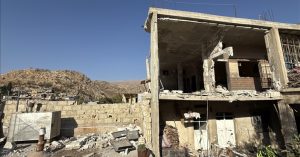 The virtues and benefits of fasting
The virtues and benefits of fasting
by Bahishti Zewar
1. Rasulullah (Sall-Allahu alayhi wa sallam) said: “The sleep of a fasting person is regarded as an act of ibaadah, his remaining silent is regarded as a tasbeeh, the reward for his good deeds is multiplied, his duas are accepted, and his sins are forgiven.”
2. It is mentioned in a Hadith that fasting is a shield and a strong fortress in order to save oneself from hell. In other words, just as a person seeks refuge in a strong fortress or by means of a shield from an enemy, in the same way, one gets salvation from hell by fasting. By fasting, a person’s power of committing sins gets weak, and his power to do good gets stronger. When a person fasts in the proper manner and implements all the etiquette of fasting, he will free himself of sins and gain salvation from hell.
3. It is mentioned in a Hadith that fasting is a shield as long as it is not destroyed by lies and backbiting. In other words, fasting works as a shield as explained above. But this is on the condition that the person abstains from sinning. If a person fasts and still speaks lies, backbites, and commits other sins, then although he will be absolved of the fard of fasting, he will be committing a major sin. Furthermore, he will be deprived of the barakah of fasting.
Also Read: Imaam Yakhsyallah: Nurture Love for the Prophet, One Will Be with Whom One Loves
4. It is mentioned in a Hadith that fasting is a shield. The person who awakens in the morning in a state of fasting should not commit any act of ignorance. If a person approaches him in an ignorant way, he should not reply him in the same ignorant manner nor should he address him disrespectfully. Instead, he should inform him that he is fasting. By him in whose control is the life of Muhammad (Sall-Allahu alayhi wa sallam), the smell that emanates from the mouth of a fasting person is more beloved in the sight of Allah Ta’ala than the fragrance of musk. In other words, on the day of judgement, the smell that emanates from the mouth of a fasting person will be replaced with a fragrance even better than musk. This fragrance will emanate from the mouth of the fasting person and it will be most beloved in the sight of Allah Ta’ala. This foul smell that emanates from a fasting person in this world will actually be a source of attaining that fragrance in the hereafter.
5. It is mentioned in a Hadith that at the time of opening the fast, the person is permitted to make a dua whose acceptance is promised.
6. It is mentioned in a Hadith that Rasulullah (Sall-Allahu alayhi wa sallam) addressed two persons saying: “You should fast because fasting is a shield in order to save oneself from hell and in order to save oneself from the difficulties of time.” In other words, one will be saved from hell and also from the difficulties and calamities of this world.
7. It is mentioned in a Hadith that on the day of judgement, three persons will not have to give an account of the food that they ate, immaterial of what they ate as long as it is halal. They are: the fasting person, the person who makes sehri, and the person who is stationed on the borders of the Islamic state safeguarding it from being invaded by the kuffaar. This is a great concession for these three persons that they have been absolved from giving an account of their eating. It should be borne in mind that despite this concession, one should not spend a lot of money and time in preparing very exquisite meals. Spending a lot of time in preparing delicacies turns one away from the remembrance of Allah Ta’ala and gives impetus to one’s power of committing sins. This should always be borne in mind. One should value the bounties that Allah Ta’ala has blessed one with. The best way of showing gratitude to Allah Ta’ala is that one should obey all His commands and orders.
Also Read: Thanksgiving: An Islamic Perspective
8. It is mentioned in a Hadith that the person who feeds a fasting person at the time of opening fast will receive the same reward as that of the fasting person without there being any decrease in the reward of the fasting person. In other words, through the mercy and generosity of Allah Ta’ala, both of them will receive the same reward. This will apply even if the person feeds him with a very simple or insignificant meal. Even if he merely gives him some water to drink.
9. It is mentioned in a Hadith that Allah Ta’ala multiplies the rewards of His pious servants by ten times up to 700 times except for the reward of fasting. In other words, there is no limit for the reward of fasting. As regards fasting, Allah Ta’ala says: “It is for Me alone and I will give the reward for it.” From this we can gauge how great the reward of fasting is that there is no limit to the rewards. In addition to this, Allah Ta’ala will give the reward for fasting Himself and will not delegate this task to the angels. Glory be to Allah Ta’ala for attaching such importance to this little effort on our part. However, it should be borne in mind that all these virtues and benefits of fasting will only come into effect when we fulfil this duty as it ought to be fulfilled, and only when we abstain from speaking lies, backbiting, and all other sins. In the month of Ramadaan, some people leave out their Salats completely while others miss out the fajr Salat. In doing so, they are depriving themselves of the numerous blessings and rewards of fasting. Furthermore, by reading this Hadith, one should not have this misconception that fasting is more virtuous than Salat because Salat is the most virtuous of all the different acts of ibaadah. The meaning of this Hadith is that there is a very great reward for fasting and it does not mean that fasting is the most virtuous act of ibaadah. The above-mentioned Hadith continues that there are two times of extreme happiness for the fasting person. The first time of happiness is when he opens his fast and the second time is on the day of judgement. That is, when he meets Allah Ta’ala, as mentioned in other Ahaadith.
10. It is mentioned in a Hadith that on the first night of Ramadaan the doors of heaven are opened. These doors remain open right till the end of Ramadaan. There is no Muslim who offers Salat in any of the nights of this month except that he receives 2500 rewards for every rakaat that he offers. In addition to this, Allah Ta’ala will construct a palace of rubies. This palace will have sixty doors. Each of these doors will have a golden chamber which will be decorated with rubies.
When the person keeps the first fast of Ramadaan, all the minor sins that he had committed during the past year since the first fast of the last Ramadaan will be forgiven. In addition to this, 70 000 angels will make dua for his forgiveness daily from morning till sunset. For every rakaat of Salat that he offers in Ramadaan, whether it be during the day or at night, he will be rewarded with a tree in paradise. The shade of this tree will be such that a traveller will be able to travel beneath it for a journey of 500 years.
Also Read: Achieving the Position of Fasting Expert with Kindness of Morality
How great is the virtue of fasting! O Muslims! Never allow yourself to miss any fast. In fact, if you have the strength, then keep nafl fasts as well. Show total love for Allah Ta’ala who is so merciful that He is rewarding us so abundantly in exchange for a little effort on our part. At least make Allah Ta’ala your beloved for your own benefit in that you will receive the abundant benefits of jannah.
11. It is mentioned in a Hadith that jannah is decorated from the beginning of the year till the end of the year especially for Ramadaan. In addition to this, the large-eyed Hoors of jannah decorate and beautify themselves from the beginning of the year till the end of the year especially for the fasting persons. When Ramadaan commences, jannah says to Allah Ta’ala: “O Allah! Enter your pious servants into me in this month.” As for the large-eyed Hoors, they say: “O Allah! Appoint husbands for us from among your pious servants.”
The person who did not slander anyone in this month and did not consume any intoxicants shall have all his sins wiped out. As for the one who slanders someone or consumes any intoxicant, all his good deeds for the past year will be wiped out. In other words, he will be committing a major sin. It should be borne in mind that just as rewards are multiplied in a holy month, punishment is also increased if a sin is committed in a holy month. One should ponder over the warning in this Hadith.
Fear the month of Ramadaan because it is the month of Allah Ta’ala. In this month, Allah Ta’ala has ordered His servants to emulate His practice by abstaining from food and drink. Since Allah Ta’ala is pure from food and drink all the time, this month of Ramadaan has been specially attached to Him. As for the other months, they all belong to Him as well. Allah Ta’ala has given you eleven months in which you can eat, drink, and indulge in other halal pleasures. He has set aside just one month for Himself in which He has ordered you to abstain from food, drink, and other halal pleasures. Therefore, fear the month of Ramadaan, for most certainly, it belongs to Allah Ta’ala.
Also Read: The Power of Charity in Ramadan
Obey Allah Ta’ala in this month and abstain from sins. Although obedience to Allah Ta’ala is necessary all the time, it’s importance is stressed in particular places such as Makkah al-Mukarramah and Madinah al-Munawwarah; and at particular times such as in the month of Ramadaan. Special attention should be paid to abstaining from sins at such places and at such times because just as rewards are multiplied at these times and places, so too is punishment.
12. It is mentioned in a Hadith that when food is presented to you at the time of iftaar, then prior to opening your fast you should recite the following dua:
Translation: “In the name of Allah. All praise is due to Allah. O Allah! I have fasted for Your pleasure, it is with Your sustenance that I am opening my fast, and I have placed complete trust in You. Glory be to You and praise be to You. Accept this fast from me for most surely You are All-Hearing, All-Knowing.”
13. It is mentioned in a Hadith that when you open your fast, it is preferable to open it with dry dates because there is a lot of blessing in this. If you do not have dates, open your fast with water because water is a great purifier. In certain Ahadith it is also mentioned that the fast should be opened with milk.
Also Read: Ramadan Brings the Change
14. It is mentioned in a Hadith that the person who keeps fast for 40 days solely for the pleasure of Allah Ta’ala shall have whatever dua he makes to Allah Ta’ala accepted. In other words, this person will become so beloved in the sight of Allah Ta’ala that whatever dua he makes will be accepted by Allah Ta’ala if He feels that it will be to the benefit of that person. The respected sufis, may Allah Ta’ala be pleased with them, have laid down a system of cutting off all relations with this world for forty days and engaging in the ibaadah of Allah Ta’ala in a musjid. In addition to this, the person must fast for these forty days while he is in the musjid. By doing this, the person will benefit tremendously and will also develop the strength to do good deeds. Through the barakah of this, he will receive special knowledge from Allah Ta’ala and he will also be blessed with a deep understanding of things.
15. It is mentioned in a Hadith that the person who fasts on Thursdays, Fridays and Saturdays of every sacred month, he will receive the reward of making ibaadah for 700 years. There are four months which are sacred. They are: Rajab, Zul Qa’dah, the first ten days of Zul Hijjah, and Muharram. However, it should be borne in mind that it is haram to fast on the 10th, 11th, 12th and 13th of Zul Hijjah.
16. It is mentioned in a Hadith that the person who keeps three fasts in the sacred months, on Thursday, Friday and Saturday, he will receive the reward of making ibaadah for two years. That is, on the Day of Judgement it will be written in his book of deeds that he had made ibaadah for two years in return for these three days of fasting. (T/P3/R01)
Mi’raj Islamic News Agency (MINA)
Also Read: Ramadan, the Month of Education
Source: Albalagh.net






























 Mina Indonesia
Mina Indonesia Mina Arabic
Mina Arabic